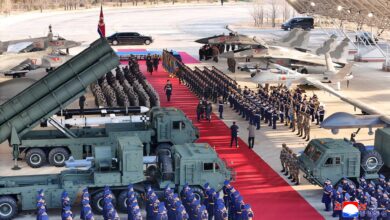One September day in 1961, Kim Il Sung visited the Pyongyang Hotel, where the delegates to the historic Fourth Congress of the Workers’ Party of Korea were staying, and had a talk with a woman delegate. When he asked her how many there were in her family, she hesitated.
An official standing beside answered that she and her husband had no children.
“Only two of you? How old are you?” the leader asked again.
She answered in a faint voice that she was 29.
Changing the topic, Kim Il Sung asked where her husband was working and how much her salary was. Then he studied her face carefully.
“You don’t look well. Do you have any illness?”
“No. I have just spent some sleepless nights, trying to finish my work before participating in the congress.”
“You look sick although you deny your illness.”
With a worried look, the leader continued: If you are really all right, why don’t you have a child at the age of 29? Surely you look sick.
She was at a loss what to answer.
Then he asked her if her husband did not complain about her failure to give birth.
She burst into tears, moved by his meticulous concern for her agony. She had always felt sorry for her husband although he had never complained.
The leader soothed her, saying that she must receive treatment, give birth and work harder in good health.
Later, he sent her medicine, and she recovered her health, gave birth to a child and named it Un Dok (Benevolence).

